MercoPress. South Atlantic News Agency
Mercosur
-
Tuesday, August 8th 2017 - 15:41 UTC
Markets (and investors) in Argentina waiting for Sunday primary results

The technical tie for the Senate seat in the province of Buenos Aires is being closely followed by the business community and potential investors in Argentina, fearing that a victory by ex president Cristina Fernandez over the candidate sponsored by president Mauricio Macri, could be interpreted as a longing for the hand-out and subsidies policies of Kirchnerism and rejection of the current economic reforms which have yet to deliver enough jobs and stable prices.
-
Sunday, August 6th 2017 - 22:38 UTC
Bumper crops anticipate tough corn battle between leading exporters US and Brazil

Brazilian farmers are in the midst of collecting their biggest corn harvest ever, and American supplies are also plentiful -- setting the stage for a stiff battle to win world buyers in the second half of the year.
-
Sunday, August 6th 2017 - 00:23 UTC
Venezuela suspended indefinitely: “Without democracy, you can't be part of Mercosur”
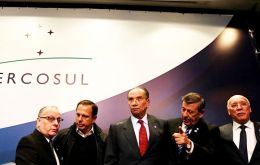
Mercosur foreign ministers meeting on Saturday in Brazil suspended Venezuela indefinitely for failing to uphold democratic norms amid an intensifying crackdown on dissent in the country. The bloc previously suspended Venezuela in December for failing to uphold commitments it made when it joined the group in 2012.
-
Saturday, August 5th 2017 - 07:55 UTC
Mercosur foreign ministers will discuss the Venezuela situation in Brazil
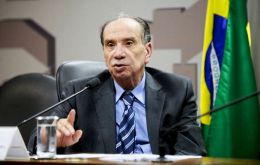
Mercosur foreign ministers are scheduled to meet this Saturday in Sao Paulo to decide on to how to address latest events in Venezuela, the fifth member of the group which remains suspended, and so far has not replied to calls to cancel the constituent assembly procedure and attempt some form of dialogue with the political opposition.
-
Monday, July 24th 2017 - 07:07 UTC
Mercosur and Colombia agree to a limited list of tariff-free products
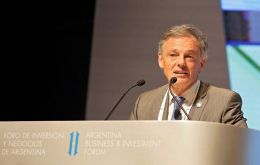
Mercosur inked a trade deal with Colombia last Friday to allow limited quantities of tariff-free trade in products including automobiles, textiles and agrochemicals, Argentina's and Colombia's governments said.
-
Saturday, July 22nd 2017 - 08:39 UTC
Venezuelan situation overshadows Mercosur presidential summit
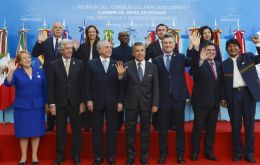
The members of Mercosur trade bloc called for an end to violence in Venezuela in a joint statement on Friday. However again opinions were divided: while Brazil and Argentina sponsored a more explicit warning to President Nicolas Maduro and his regime, Uruguay had it redrafted in a more conciliatory tone and Paraguay finally came out with a compromise option.
-
Tuesday, July 18th 2017 - 05:11 UTC
Mercosur farmers will continue to vaccinate against foot and mouth disease
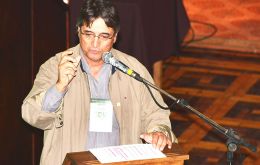
Mercosur Federation of Rural Associations consider inconvenient that the region should cease to vaccinate cattle against foot and mouth disease.
-
Wednesday, July 5th 2017 - 02:29 UTC
Tabaré Vázquez concerned about Mercosur's political volatility

Uruguayan President Tabaré Vázquez Tuesday said that there are many internal problems in the countries that make up Mercosur, but that he was also “confident” that the main achievement this year will be the free trade agreement with the European Union.
-
Tuesday, July 4th 2017 - 02:57 UTC
Announcement in Madrid: EU-Mercosur deal likely by end of year

European Union (EU) Trade Commissioner Cecilia Malmström said Monday in Madrid that the EU bloc “hopes to announce a political agreement for this Christmas in Buenos Aires” with Mercosur “even though technical aspects remain to be discussed.”
-
Wednesday, June 14th 2017 - 03:08 UTC
New Argentine Foreign Minister Jorge Faurie sworn in
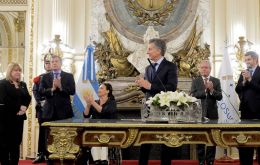
Argentina's new foreign minister Jorge Faurie took the oath of office before President Mauricio Macri to succeed Susana Malcorra, who resigned due to “personal reasons,” but will cotinue to serve the government in a different capacity.
